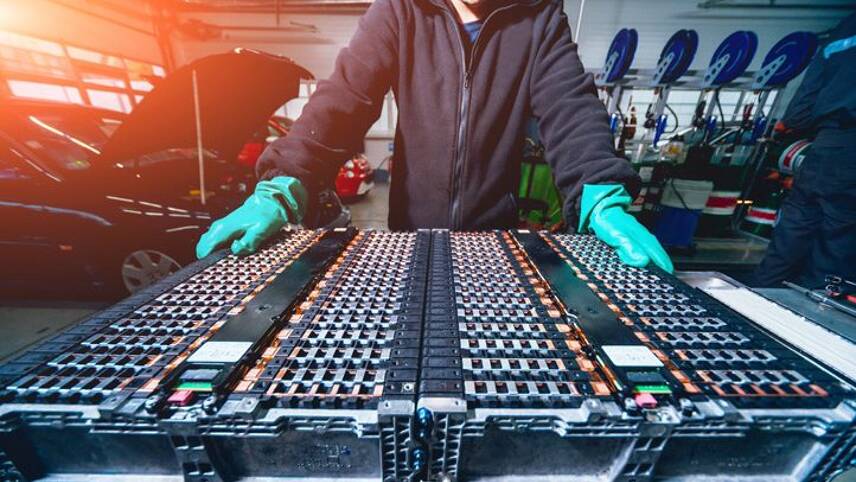Register for free and continue reading
Join our growing army of changemakers and get unlimited access to our premium content

The PM’s claim is well supported by the data. By 2030, batteries can help reduce global transport and power sector emissions by 30%, according to research by the Global Battery Alliance (GBA), a cross-industry multi-stakeholder initiative aimed at creating a sustainable battery value chain. Given that the transport and power sectors make up a huge proportion of global emissions (around 40% in early 2020), batteries can be a major driver in decarbonisation not least through their support for electric mobility.
A number of countries including Germany, France, and Spain have, in fact, recently introduced plans that go a long way in putting electric vehicles at the centre of economic recovery across Europe. This message is best articulated under the EU’s Green Deal which has paved the way for all these supportive policies and measures including extensive subsidies, scrapping of parking fees for EVs and a ramp-up of charging infrastructure instalments.
Britain’s automotive industry is also set to benefit from £73.5m in government investment, announced recently, to accelerate the development of green technologies and protect jobs. Recyclable batteries are among the cutting-edge technologies that will support next-generation electric vehicles including taxis, cars and vans.
Private sector efforts are also well under way. Extensive residential broadband networks are being made available for use as charging points; big corporates like McDonalds are now using their network to the same end and; plans for the country’s first battery Gigafactory are on the not-so-distant horizon.
It should come as no surprise that governments and businesses are turning to e-mobility with renewed urgency. This reflects not only a need to sustain and solidify environmental benefits recorded as a result of lockdowns but also a growing confidence in e-mobility’s economic proposition: recent research by the Advanced Propulsion Centre found that EVs can boost the UK economy by £24bn on the basis that suppliers can keep pace with increased demand.
UK automakers, however, will have to go further than just ramp up production – and attend to the battery sector with the same type of urgency.
Sourced sustainably, batteries can help businesses demonstrate their commitment to net-zero, the Paris Agreement as well as UN Sustainable Development Goals, ensuring that the EV revolution supports collective environmental, social and human rights ambitions.
This is among the key aims of the Battery Passport, an initiative introduced by the GBA at the World Economic Forum Annual Meeting in Davos this year. This will act as a quality seal enabling end-users and automakers to identify and measure the sustainability and environmental impact of the battery including its material provenance, GHG emissions and battery chemistry.
It will therefore help tell the “story” of batteries that power electric vehicles, providing transparency to show if they are sourced to the highest possible social and environmental standards – and at no point connected to child labour which can still be involved in the production of cobalt, a key battery metal, in parts of the Democratic Republic of Congo (DRC).
The Passport will also strengthen a range of ESG parameters and advance resource efficiency, life extension, second use and stronger battery recycling – a pressing issue with an estimated 11 million tonnes of batteries expected to reach their end of service lives by 2030, according to industry analysts. Similarly, a recent study by the University of Birmingham urges industry to act now to prevent unsustainable battery waste.
Increasingly, OEMs will be expected to reassure both customer audiences and policymakers that they are considering their impacts and environmental footprints not only domestically but across the value chain. In China, for example, OEMs have been required to share EV and battery data on a governmental platform since 2018. OEMs in the UK might want to pre-empt that scenario by taking proactive, responsible and collaborative action now before they are forced to by Government or pressured by consumers.
E-mobility represents the future of transportation and it is welcome news that the UK Government seems to be throwing its weight behind it. It is also encouraging that despite a marked decline in new car registrations in June, penetration rates continue to go up for electric vehicles in the UK. It is therefore important to ensure that the significant expected ramp-up in EVs we are going to see over the coming years is powered by sustainable batteries. UK businesses can and should help lay the foundation for that now.



Please login or Register to leave a comment.